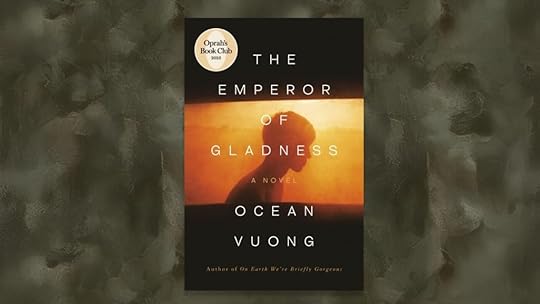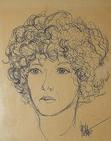The Emperor of Gladness by Ocean Vuong – Book

From a Google Image Search – NPR
Fiction reflects the culture of the particular moments in which it is created. The Emperor of Gladness by Ocean Vuong is a book of the twenty-first century, but its characters are immersed in three different wars.
Hai and Sony (named after a TV) are refugees from the Vietnam War. Sony, whose damaged brain makes him a target for bullies, knows every detail about the American Civil War. And Grazina, an immigrant from Lithuania, now in her eighties and in and out of dementia, is reliving the Second World War.
None of these good people are thriving. Grazina meets Hai when she stops him from throwing himself off a bridge into the river that runs by her house. She has a son and daughter who rarely, or never, visit her at their ramshackle childhood home. After she saves Hai, he stays to take care of her. When she imagines she’s back in the war, he stumbles onto the perfect strategy for managing her dementia. He pretends he’s Sgt. Pepper and he joins her in her war memories about being chased by Germans. When she can name the current president, he knows she is back in the present.
Vuong’s book is not only about the wages of war. It’s also about families, both biological and accidental families – families that just happen. Sony has a mother, Hai’s Aunt Kim, but she’s in jail right now. Hai has a mother, but she thinks he’s in med school in Boston. Grazina is a mother but for Hai she takes the place of his deceased grandmother, and for Grazina, he takes the place of her neglectful son.
When Grazina runs out of money for the Stouffer’s dinners she loves and for utilities, Hai hits Sony up for a job at the “HomeMarket”, a fast-food restaurant that offers “Thanksgiving dinner year-round. Another ersatz family results from the many hours these workers spend together in this economically challenged rural town of East Gladness. There are not a lot of distractions or opportunities.
Drug addiction is also an undercurrent in this story, with Hai popping the downers that Grazina no longer takes. Drug addiction along with the experiences of immigrants in America connects these characters with each other and with the sinking economic circumstances of many Americans living in the twenty-first century.
Ocean Vuong is a master of description, Although often stark, and therefore strangely beautiful, his descriptive style captured my attention right away. The unique quality of his descriptions comes from his ability to make the landscape suit the characters.
“But it’s beautiful here, even the ghosts agree. Mornings when the light rinses this place the shade of oatmeal, they rise as mist across the tracks and stumble toward the black-spired pines searching for their names, names that no longer live in any living thing’s mouth.” (pg. 1)
Ocean Vuong – here’s a good writer, and a book that will stay with you. As for the ending, I forgive you Ocean Vuong, maybe.



